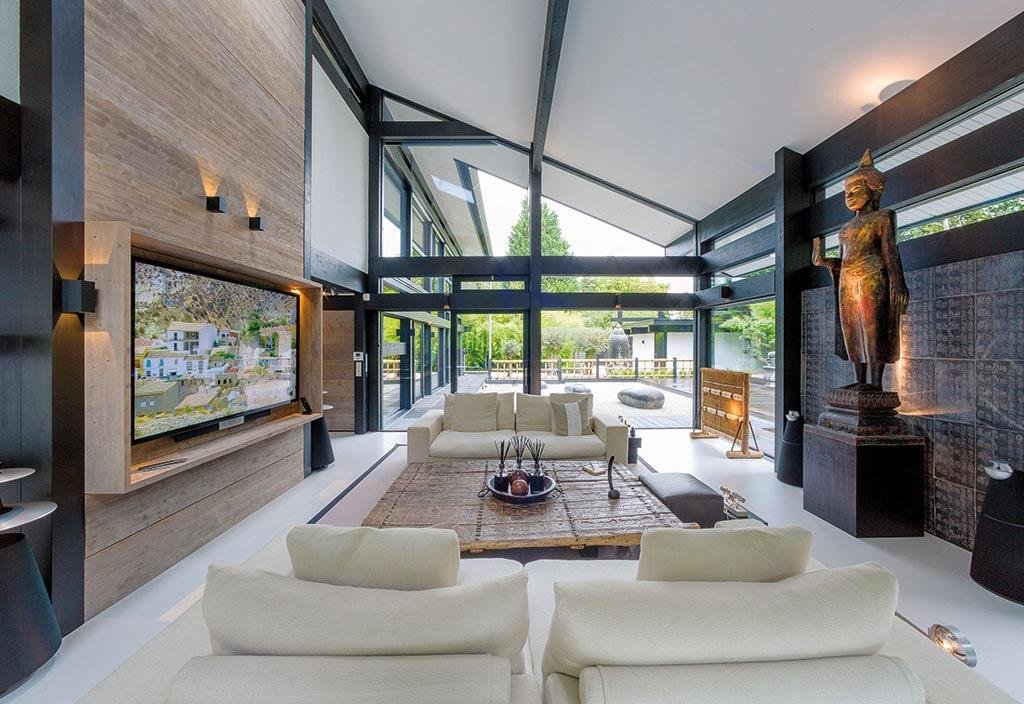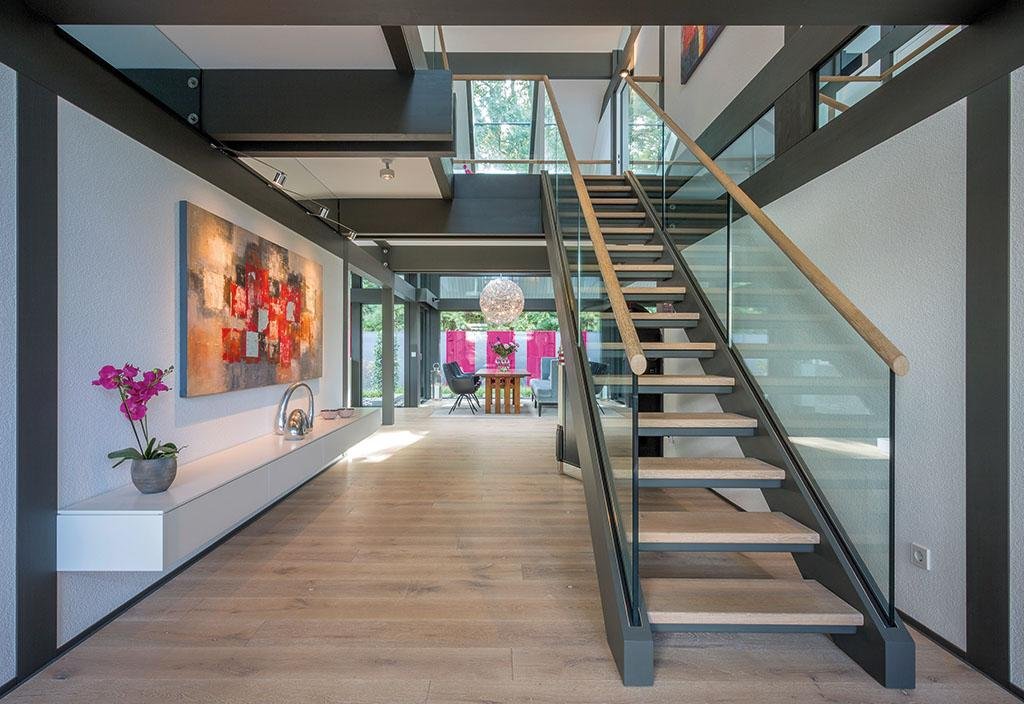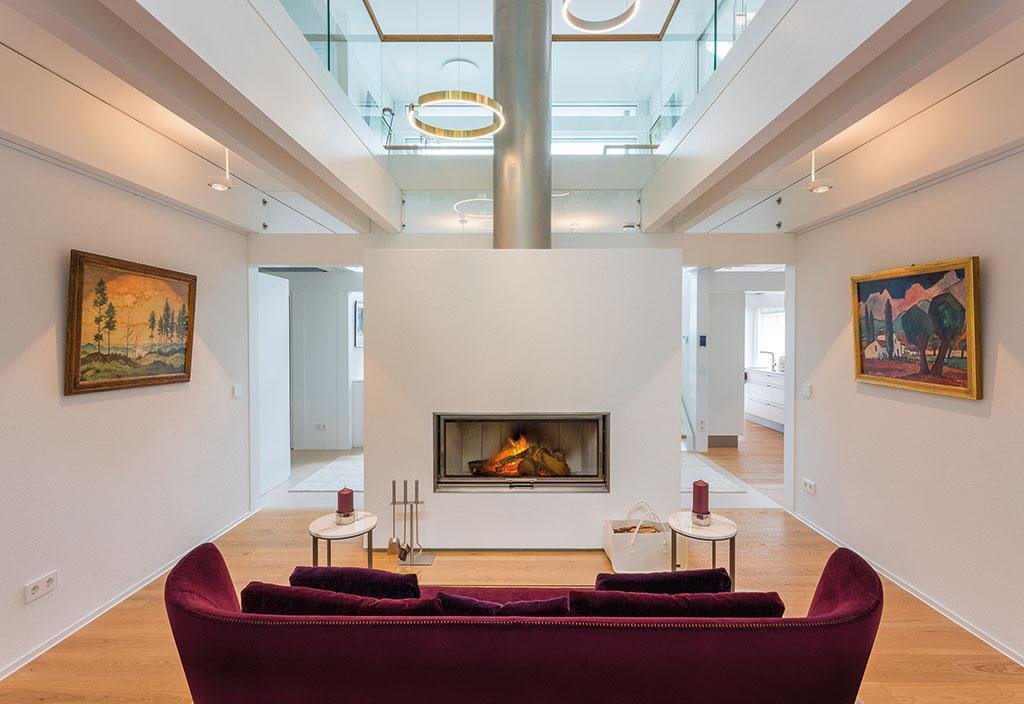
Built with imagination: An interview with HUF HAUS UK
Based in Germany, HUF HAUS manufactures bespoke, state-of-the-art premanufactured homes. The company’s iconic timber and glass architecture is developed off-site, before it all comes together using revolutionary build techniques. Originally founded in 1912, HUF HAUS now exports globally and is currently led by the fourth generation of the Huf family. Through its uncompromising demand for quality and innovation, HUF HAUS has established itself as the European market leader for modern post- and-beam homes.
The Luxury Report caught up with Afra Bindewald, Business Development Executive at HUF HAUS UK, to find out more about how it all slots into place.
What inspires a person to build their own home?
In a competitive and thriving housing market, self- builders are more aware than ever of what they want to achieve with their new home. Our clients approach us because they are looking to create a true sanctuary – a home to meet their unique needs. HUF HAUS provide luxurious, comfortable and sustainable living environments that evolve from a bespoke and carefully tailored design and build service. Our clients seek advanced, in-built technologies to make their lives more convenient and comfortable. They want to live in a fully connected, smart home and this is what HUF HAUS delivers.

What decisions must people factor in before venturing into the world of bespoke, premanufactured homes?
You must appreciate that the premanufacturing process requires all of the important, fundamental design decisions to be taken at an early stage before any building work begins.

A popular misconception of premanufactured homes is that it’s a ‘house by numbers’ approach, with only a few template designs available. Instead, our design and build process is bespoke and marries the individual needs of the client with their budget and any potential constraints, for example whether there would be planning constraints or an evaluation of plot topography required. This makes HUF HAUS the perfect partner for anyone seeking a high-end, turnkey solution to build their own home.
Has the health crisis changed what people are looking for from a self-build?
We are finding that our more recent clients, since the start of the pandemic, are focusing on the need to be more in tune with nature, and to visually connect with their surrounding exterior space.
Combining living and working from home has obviously been at the forefront of many of our clients’ priorities. I think many families like the idea that not travelling to and from their workplaces reduces their carbon footprint, and are thinking long-term about making this a permanent arrangement. So, they are looking for a seamless transition between their home and work lives.
Describe how HUF HAUS tailors each individual client experience?
The whole design process is led by our chief architect, Peter Huf and our in-house planning consultant, Philip Andrews. Together with the client’s personal sales representative this makes for a dedicated and highly experienced team.

Each project is unique and the design/service will be tailored specifically to their individual needs. This carries right through from architectural considerations, through interior design and fit-out, to the final project management and build.
How does HUF HAUS integrate smart technology to enhance the living space?
Green and sustainable technologies are a big part of what we do. Ground-source or air-source heat pumps can generate hot water and heating and be combined with photovoltaic solar panels for electricity. These are probably our most regularly incorporated technologies.
However, other cutting-edge solutions, such as ice storage tanks or solar fencing are also available options. In fact, we incorporated solar fencing into a house in Surrey. On-site domestic battery storage is also offered to clients who would like to live fully off-grid. Sophisticated sound and lighting systems combine with bespoke smart-home audio-visual packages and allow full control of individually designed lighting scenes.

The increasingly popular audiovisual and smarthome systems found within a HUF house, have been carefully curated by our partners Butler Harwell to discretely complement the interior architecture, without ever compromising on performance. Our clients expect the very best, the speakers are stylishly integrated into the architecture and are finished in the same colour as the wooden beams, allowing them to blend seamlessly into their environment. Paired with hidden, high- performance subwoofers, it creates a rich, warm sound that is rarely experienced in a modern and open-plan home. It is all connected to a smart system and operated via the simplest, hand-held touchscreens. All of the most popular streaming services right at your fingertips.
In what ways are HUF homes energy efficient and sustainable?
Where previously sustainable enhancements were simply thought of as add-ons – such as solar roof panels and loft insulation – the HUF HAUS concept prides itself in providing integral fabric efficiency to the highest measurable standards

Less energy is required to run a comparably sized HUF house. It does not overheat in summer, and will not lose valuable warmth in winter months, therefore giving the HUF architect more freedom in design. It allows for the design to incorporate larger areas of glazing, so natural light floods the building and the families can enjoy expansive views of their gardens and the surrounding landscape.
And how does the company itself meet these requirements?
HUF homes are highly sustainable as we only use sustainable/certified timber sources. We are a multi- award-winning company both in continental Europe and in the UK, recognised for our sustainable production and build process
There is minimal waste from our production facilities, and off-cuts are used to heat the factory. In essence, sustainability is a concept that drives the company right through the production, design and build process. Other measures include electric cars for HUF HAUS employees, heat exchangers in the production facilities, and all waste from our building sites is returned to the factory to be recycled.
For further information:
www.huf-haus.com
